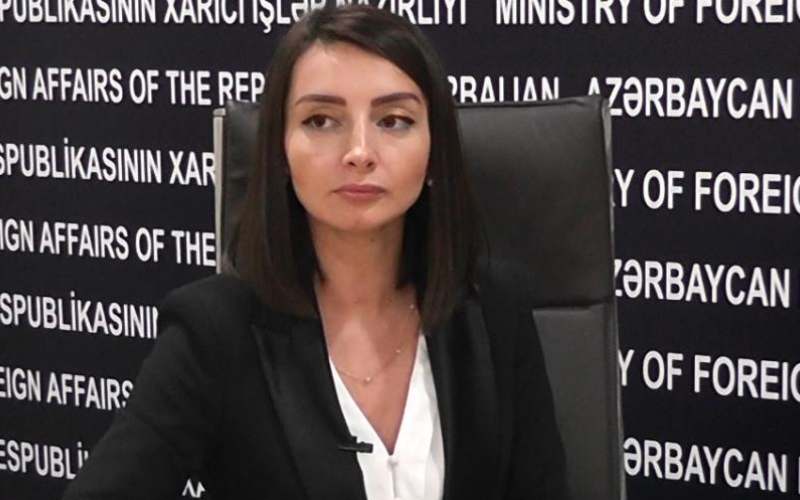
Zohrab Mnatsakanyan, once again, repeating the absurd statement of Nikol Pashinyan made by him in the city of Khankendi, occupied by Armenia, in fact puts himself in a very unenviable position before the international community, and first of all, before the OSCE Minsk Group co-chairing countries, spokesperson of the Azerbaijani Foreign Ministry Leyla Abdullayeva said.
Indeed, such irresponsible rhetoric not only completely contradicts both international law and the position of international mediators, but can also nullify all efforts aimed at a peaceful resolution of the conflict, she said.
Abdullayeva was commenting on the speech of Armenian foreign minister, who quoted the statement made by the prime minister of Armenia on the alleged "belonging" of Nagorno-Karabakh to Armenia.
"Such a revealing of the true face and the dropping of masks by the Armenian side, revealing its unambiguously annexationist intentions regarding the occupied territories of Azerbaijan, serves as a serious occasion to draw the attention of international institutions to the official position of the Armenian government aimed at disrupting the negotiation process. The Azerbaijani Foreign Ministry has already sent letters to the secretaries-general of the UN and the OSCE, as well as to the foreign ministers of the co-chairing countries of the OSCE Minsk Group and all its other members, which spell out the danger of the current situation created by Pashinyan’s statements," she said.
"The Azerbaijani side, recalling the grave consequences of the unsettled Armenia-Azerbaijan Nagorno-Karabakh conflict and the occupation of internationally recognized territories of Azerbaijan by Armenia, considers the recent statements of Armenian prime minister as the crossing of the “red line”, behind which there is an even greater aggravation of the situation. We strongly recommend that the Armenian side carefully reads the decision of the CSCE Foreign Ministers Council of March 24, 1992, as well as the mandate of the OSCE Minsk Group co-chairs, which clearly indicates measures to achieve a peaceful settlement of the conflict. Peaceful settlement of the conflict should not be based on the recognition of the results of armed aggression, but rather proceed from the UN Charter, the provisions of the Helsinki Final Act, decisions of the UN Security Council and the OSCE," Abdullayeva added.
The conflict between the two South Caucasus countries began in 1988 when Armenia made territorial claims against Azerbaijan. As a result of the ensuing war, Armenian armed forces occupied 20 percent of Azerbaijan, including the Nagorno-Karabakh region and seven surrounding districts.
The 1994 ceasefire agreement was followed by peace negotiations. Armenia has not yet implemented four UN Security Council resolutions on withdrawal of its armed forces from Nagorno-Karabakh and the surrounding districts.
Views: 313
